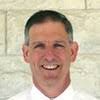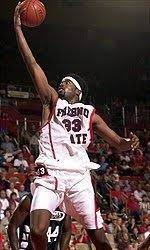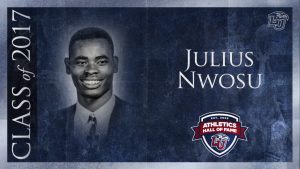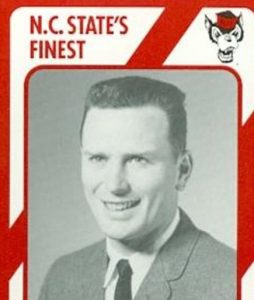It is difficult to make a significant impact when you only have 1 opportunity to get it right…but that is exactly what Vince Cazzetta did back in 1968. After leading Seattle University to 3 straight NCAA tourney appearances from 1961-1963, he spent 4 years as an assistant at Rhode Island. In 1967 he was hired as head coach of the Pittsburgh Pipers during the very 1st season of the American Basketball Association, and ended up beating New Orleans in Game 7 of the Finals to win the title. He was named Coach of the Year but resigned after the team owners refused to give him a raise when the franchise moved to Minnesota. HoopsHD’s Jon Teitel got to chat with Vince’s son Vinnie about his father’s winning ways in both college and the ABA. Today is both the 53rd anniversary of Vince winning the very 1st ABA title on May 4, 1968, and the 16th anniversary of his passing on May 4, 2005, so it seems like an appropriate day to both celebrate his success and remember his legacy.
Your father served in the Army at the Battle of the Bulge during World War II: what impact did the war have on him both as a father and as a coach? As a father he never talked much about the war at all, but we knew that he had a couple of toes freeze during the war. However, I remember him vividly retelling his grandkids some of his old war stories. As a coach he was a taskmaster: there was no gray area. When things got crazy in the 1960s he would not bend at all and his players responded well to his discipline.
In 1958 he replaced his childhood friend John Castellani as coach at Seattle after Castellani lost to Kentucky in the title game the previous spring and then resigned due to improprieties (providing airfare to a pair of coveted recruits): how was he able to step into such a sticky situation and make the best of it? He inherited a solid core of players so John did not leave the cupboard bare. It might have been easier back then due to the lack of media attention/outside distractions. He was ahead of his times in terms of recruiting: Seattle had more African-American players than a lot of other schools at the time. He would go up and down the East Coast to find talented players.
What are your memories of the 1961 NCAA tourney (Jerry Hahn had 13 PTS/12 REB and made a shot with 4 seconds left in a 2-PT win by ASU) or 1962 NCAA tourney (Mel Counts had 20 PTS/15 REB in a 4-PT OT win by Oregon State)? I do not remember these games but I recall him mentioning that the 4 or 5 best teams in the entire tourney were all from the West Coast and he ended up having to play them all. Nowadays all of those good teams would be split up around the country and only meet in the Final 4.
He resigned as coach of Seattle with 9 games left in the 1963 season after a dispute with the athletic director: what was the nature of the dispute, and how could he walk away from a team that was on its way to its 3rd straight NCAA tourney? My dad was the kind of guy who would sit down with the media at a local restaurant on a regular basis and talk with them about anything. He would not give the canned answers you hear today so a lot of the Seattle-area media encouraged him to seek more power within the organization. The AD and Jesuit administration started to get nervous about the high level of success he was having. I played at a Jesuit university (Fairfield) and it is still like that even today: you cannot have it both ways. There was a concern that people might think it was a basketball factory that was not strong academically. If he were alive today I think he would say that he would have done things differently because he had to start all over as an assistant coach at Rhode Island. I cannot imagine someone like Coach K starting over.
He spent 1 year as head coach of the ABA’s Pittsburgh Pipers in 1968, who beat New Orleans in 7 games to win the 1st-ever ABA title led by MVP Connie Hawkins: why did he decide to take the job, and what did it mean to him to win the title? He was looking to move up the ranks and thought about becoming a college head coach, but he decided to take a new challenge in the professional ranks. Hawkins was the star but he had great role players around him. All of the African-American players worked hard for him because he motivated them. It was a thrill for him, as it would be for any coach on any level.
That same year he was named ABA COY: what did it mean to him to win such an outstanding honor? It was both humbling and rewarding. The ABA was still trying to feel its way around after starting very quickly. He did not have a lot of time to mold players from different background into a team…but he did. They made a key trade during the season that really solidified things.
He resigned as coach of the Pipers after team owners refused to give him a raise in order to help move your family to Minnesota (where the franchise was relocating to): why on earth did the team change cities after winning the title, and how do you feel about his decision to place his family over his job? The reason they moved is because ABA Commissioner George Mikan had to live in a city where there is a franchise. When the Muskies moved after the season Mikan convinced the Pipers’ owners to move from Pittsburgh to Minnesota. He was making about $12,000 at the time and was offered a choice: a $1000 raise or relocation costs for our family (but not both). My dad felt we had to establish roots and he knew that if we moved to Minnesota then we would just end up moving again sometime soon (which became true when the Pipers ended up moving back to Pittsburgh).
He later served as a professor in the Sports Management department at UMass Amherst and as a scout for the Minnesota Timberwolves/Toronto Raptors: how did he like his post-coaching gigs, and which 1 did he enjoy the most? In his heart of hearts he always wanted to coach. I would see him watching games on TV late at night and asking out loud why a player did a certain thing. I think he enjoyed his TV/radio broadcasting work the most, as it allowed him to stay in contact with his friends in the coaching business and catch up on old times. My siblings and I all played sports growing up: when our coaches would ask him for advice he would always stay out of it because he did not think it was his place to do so. He would never put down another coach because he was just a fan of the game. He never pushed us to play basketball: we pushed ourselves.
He passed away in 2005: when people look back on his career, how do you think he should be remembered the most? I think he should be remembered as a coach who was ahead of his time. He was a visionary and a great student of the game. Basketball was more than just coaching to him. He never played basketball growing up: he was self-taught and always studying the game.










